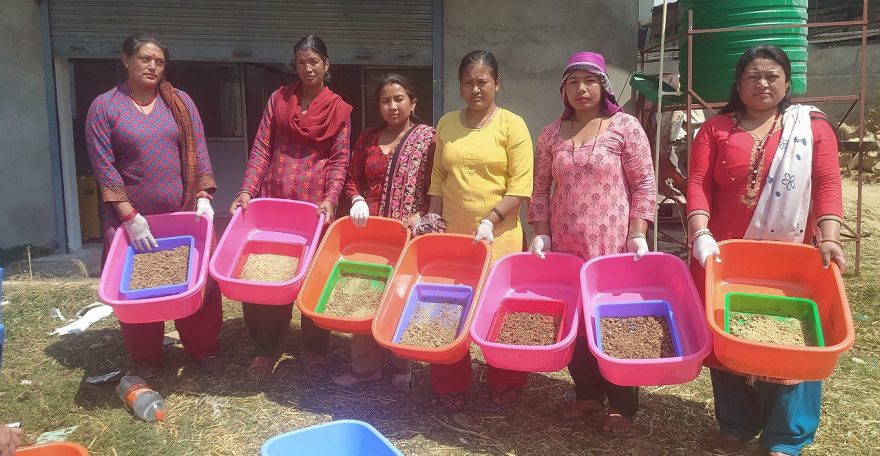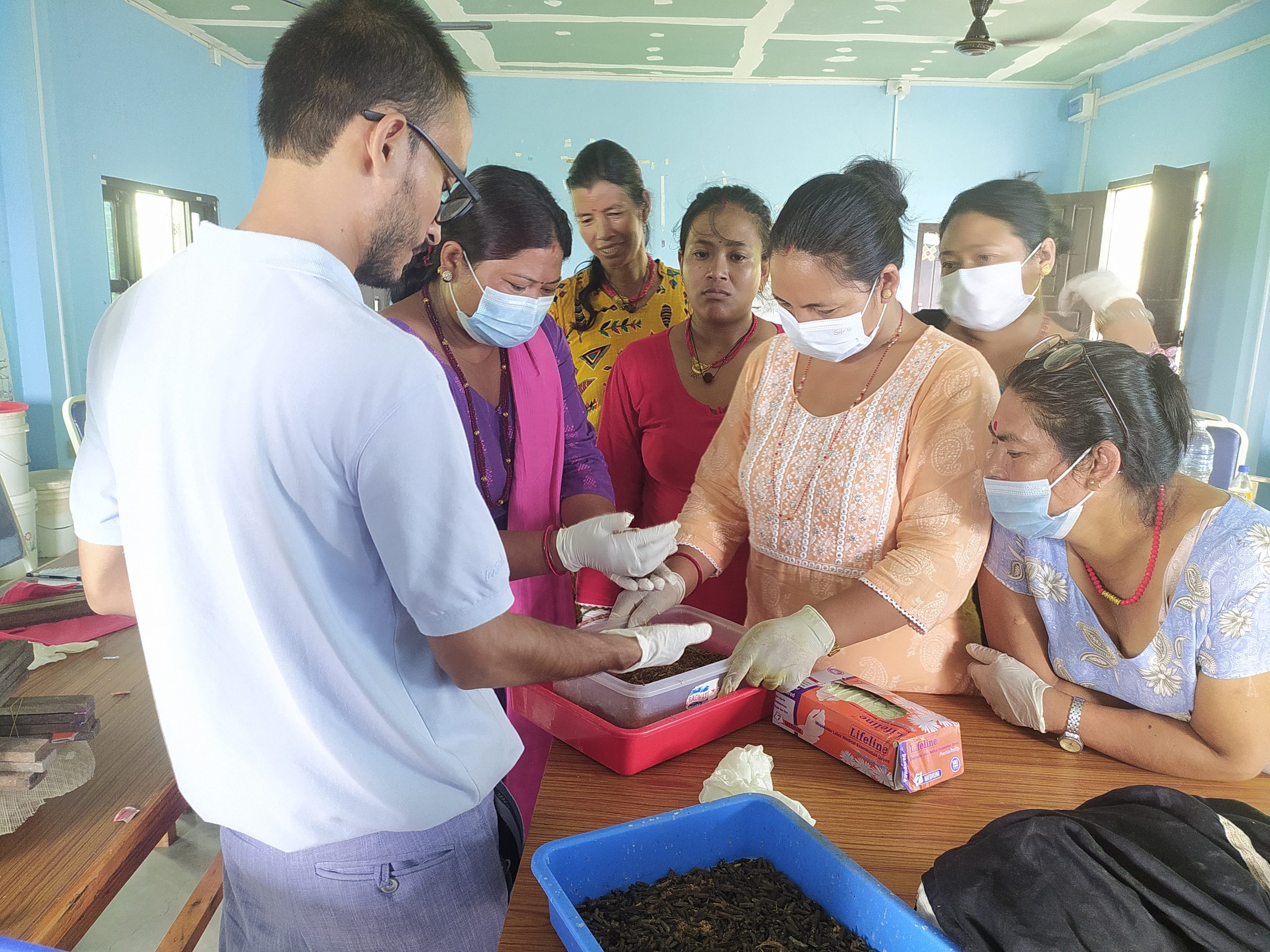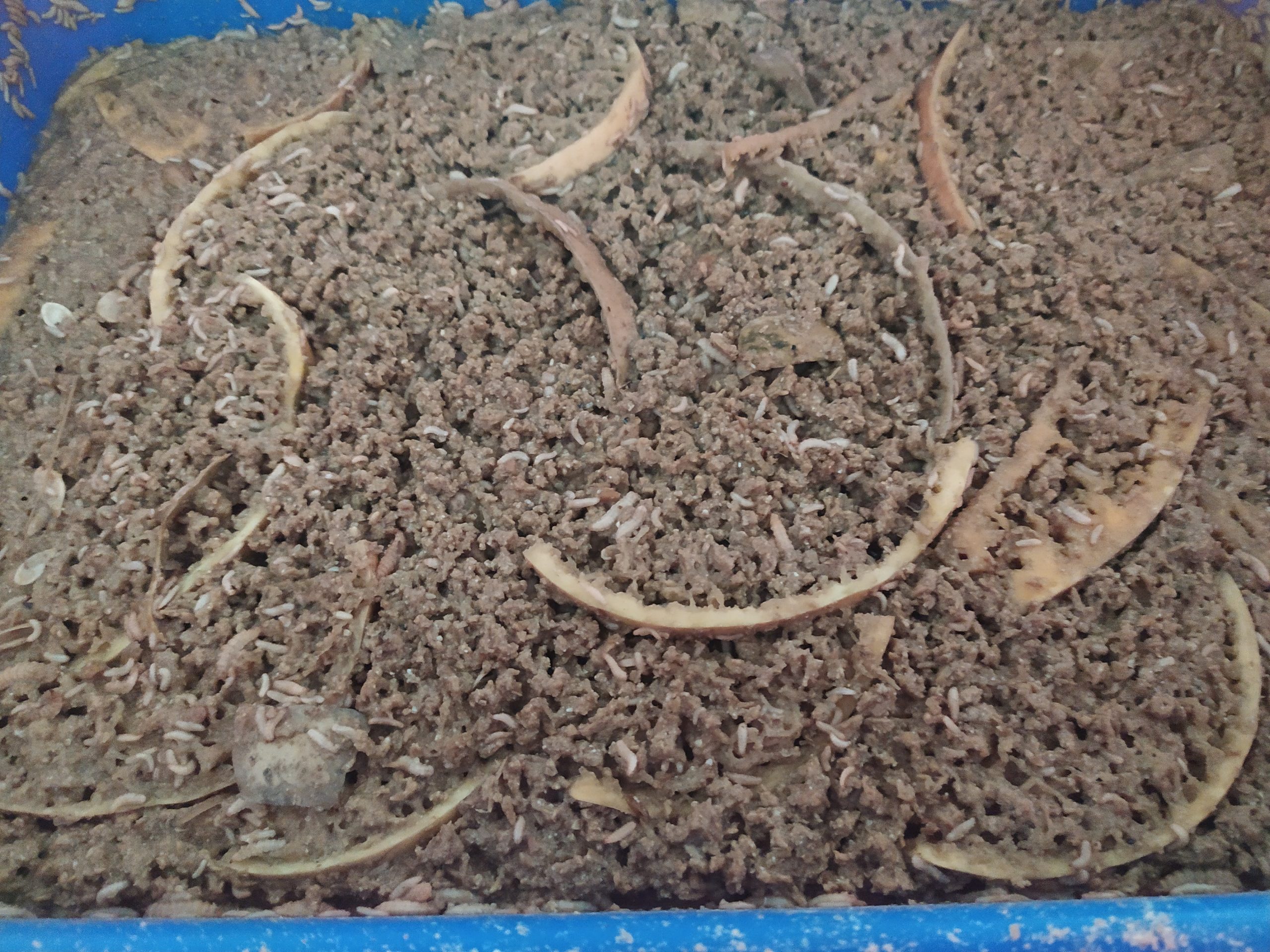Fly larvae help Nepalese women create innovative sustainable business

FCA and Womens’ Bank BUZZ project in Nepal uses larvae from the Black Soldier Fly as alternative animal feed due to their high protein and fat content, as opposed to traditional feeds. This reduces solid waste by efficiently converting organic waste into animal feeds and organic fertilizer within the cycle of circular economy.
In the small village of Bhardeu in Nepal’s Lalitpur district, a building with a corrugated tin roof is abuzz with activity. Women crowd round small plastic trays, which are writhing with small larvae. One woman gently and carefully lifts a handful of the larvae in gloved hands. She doesn’t seem fazed by the wriggling grubs – in fact, these unassuming worm-like animals represent an exciting innovation in the working lives of these women. They’re a chance to turn waste into value.
– It’s such a new concept in Nepal, says BUZZ project coordinator Nishi Khatun. In the beginning, the women who saw our prototype larvae farm were a bit doubtful and sometimes frightened. But since training, they’re really confident with handling the larvae and find the process more convenient and beneficial from the farming they’re currently doing.

Women observe a demonstration of how black soldier fly larvae can be bred for animal feed in Nepal
With funding from our sister organisation, Women’s Bank, and in partnership with the Federation of Woman Entrepreneurs’ Associations of Nepal (FWEAN), the project aims to provide employment to seven women, who are part of a farming cooperative in the village. All of them face social and economic marginalisation, with limited access to resources, job opportunities and influence within their community
The premise is simple: Black Soldier Fly larvae are raised in a special production facility feeding on organic waste. They then are used as feed for farmed animals and fish. The frass (excretion of larvae/fly) is used as organic fertilizers.
– The organic waste from the household and farming land is reused again and again for the larvae, says FCA Climate and Environment Sustainability Advisor, Aly Cabrera. It’s a really good initiative because it reduces land competition between food for human and for animal consumption.

A close-up of the larvae feeding on organic waste
FCA set up the production facility and provides ongoing training to the women in both the technical skills needed to raise the larvae and the business development skills that will enable them to connect with customers and larger industries. In time, they won’t just be able to maintain their farms, but also sell surplus larvae and frass to others.
That said, it’s a very new concept in Nepal and the benefits of using the larvae are not yet well understood by stakeholders in the agriculture, poultry and fisheries industries.
Other challenges include the delicate nature of the larvae themselves. The grubs are highly sensitive to temperature and humidity and getting the ambient conditions exactly right for them to thrive is crucial.
Despite this, the women in Bhardeu recently celebrated a milestone. The initial insects needed to establish a colony arrived from the western district of Chitwan and they were able to get to work after long months of training. The cooperative issued a statement in celebration:
– We are filled with hope that our dream of economic empowerment through engagement in the Black Soldier Fly business model will finally come true. We envision ourselves becoming successful entrepreneurs.
The BUZZ project is thanks to a joint FCA and Women’s Bank initiative that develops circular economy projects to increase income opportunities & sustainable agricultural practices in order to improve community resilience.
Text: Deepika Naidu
Main picture: FCA and Womens’ Bank BUZZ project in Nepal uses larvae from the Black Soldier Fly as alternative animal feed due to their high protein and fat content, as opposed to traditional feeds. This reduces solid waste by efficiently converting organic waste into animal feeds and organic fertilizer within the cycle of circular economy.
